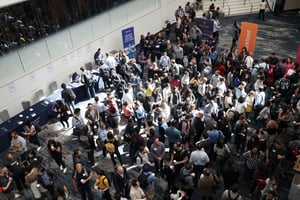As countries continue to vaccinate people against COVID-19 and provide booster vaccinations to...
Engineering from Home? Here's How to Stay Productive While Working Remotely
As the initial COVID-19 stress subsides and working from home slowly becomes more familiar, it seems like a good time for engineers to begin to refine these new routines and ensure that we all continue doing our best work.
There's some evidence that engineers are dealing with remote working surprisingly well. To assess how well the engineering workforce is coping in these challenging times, Mechanical Engineering Magazine recently asked its readers how well they are dealing with working from home.
The initial survey yielded almost 500 responses from a range of engineers. Many reported they have been working remotely for some time, making the change relatively straightforward when the state lockdowns hit.
Despite the preparedness of many in the industry, the fact remains that there are several potential roadblocks to staying productive when working remotely. How, for instance, can an engineer pick up a part for evaluation or build a prototype while sitting behind a laptop?
Here are some other -- more general -- potential issues:
- It's easy to get distracted. Even when away from the open-plan office, there's always plenty to distract you at home, from the latest Netflix series to the presence of your school-aged children as they try to learn remotely. As such, you may not be as productive as you would be in a conventional work environment.
- There's a lack of structure. Non-remote work environments have built-in structures to help us stay on task, from fixed working hours to fixed break times and lunchtimes. Working from home makes these boundaries more nebulous.
- Communication with coworkers is inconsistent. Slack, email, and video chat are common ways of getting in contact with your colleagues. But it can be tricky for your coworkers who aren't so tech-savvy to achieve the same degree of cooperation.
How Engineers Can Stay Productive
Despite these common challenges, there are some steps you can take to continue doing your best work while your office remains closed.
1. Make a weekly work plan.The strength of weekly preparation lies in the insight and leverage it offers for your life; instead of floating along, you give yourself a birds-eye view of your tasks for the week ahead and focus on your most critical tasks.
The consistency you get from a weekly work schedule also eliminates 'decision fatigue' - it allows you to know exactly what needs to be done and when, which helps free up mental bandwidth.
2. Set up the right working environment.If there isn't a dedicated home office, your work-life balance can be compromised. Distractions can come from anywhere when working remotely, requiring engineers to exercise a greater degree of self-discipline than before.
Ideally, your office should be quiet and free from distractions such as television and other family members. This physical barrier allows you to enter 'work mode' while you're on the clock. And when it is time to clock off, you can leave the room and create that physical space from your work.
3. Commit to a system of collaboration toolsEngineers work in a team. And if they can't meet up face-to-face, they better be sure collaboration tools are up to scratch.
A change to a remote office setting can be jarring if you're used to working in a more collaborative environment, with plenty of in-person conversations and company-wide meetings.
For collaboration to continue while working remotely, you need to keep up those lines of communication, and the best way to do so is to invest in remote collaboration tools.
Whether to facilitate group conversations or smooth project management, many online services exist to foster collaboration and communication, no matter where your team members are based.
4. Try to maintain a healthy work/life balance.These are dark days, and the past few months have certainly challenged our mental wellbeing. That's why taking care of your health should be a priority right now.
However, as we shield ourselves from possible coronavirus exposure, we should remember that social distancing does not mean social isolation. Whether it is calling your friends for a catch-up or going for a walk with your daughter - don't forget to take a little time for yourself and those around you.
Your mental wellbeing will thank you. After all, it's hard to stay productive when you are feeling anxious, depressed, or burnt-out.



-1.png?height=200&name=Untitled%20design%20(1)-1.png)